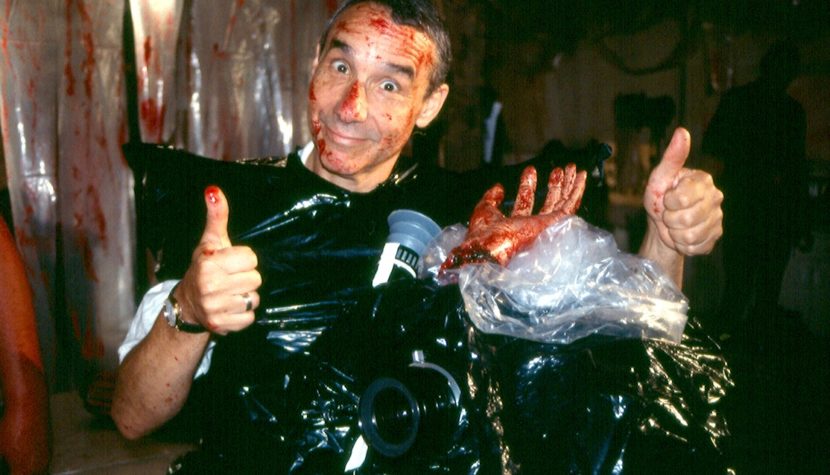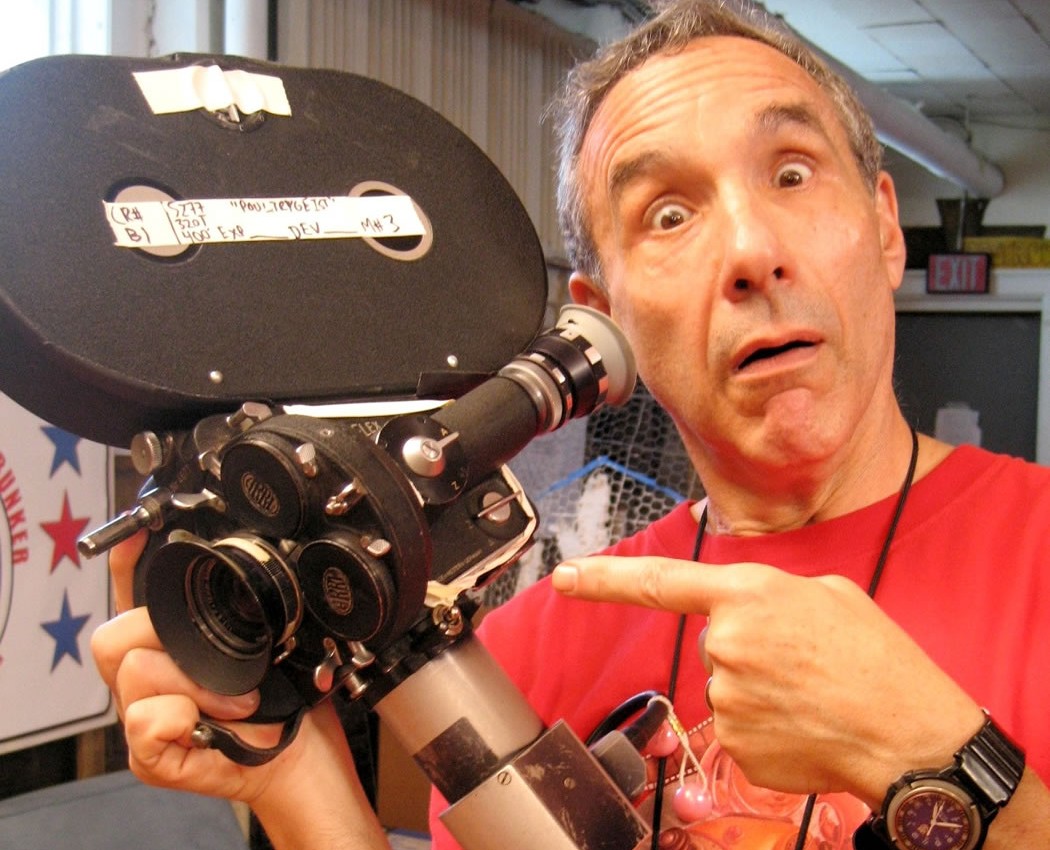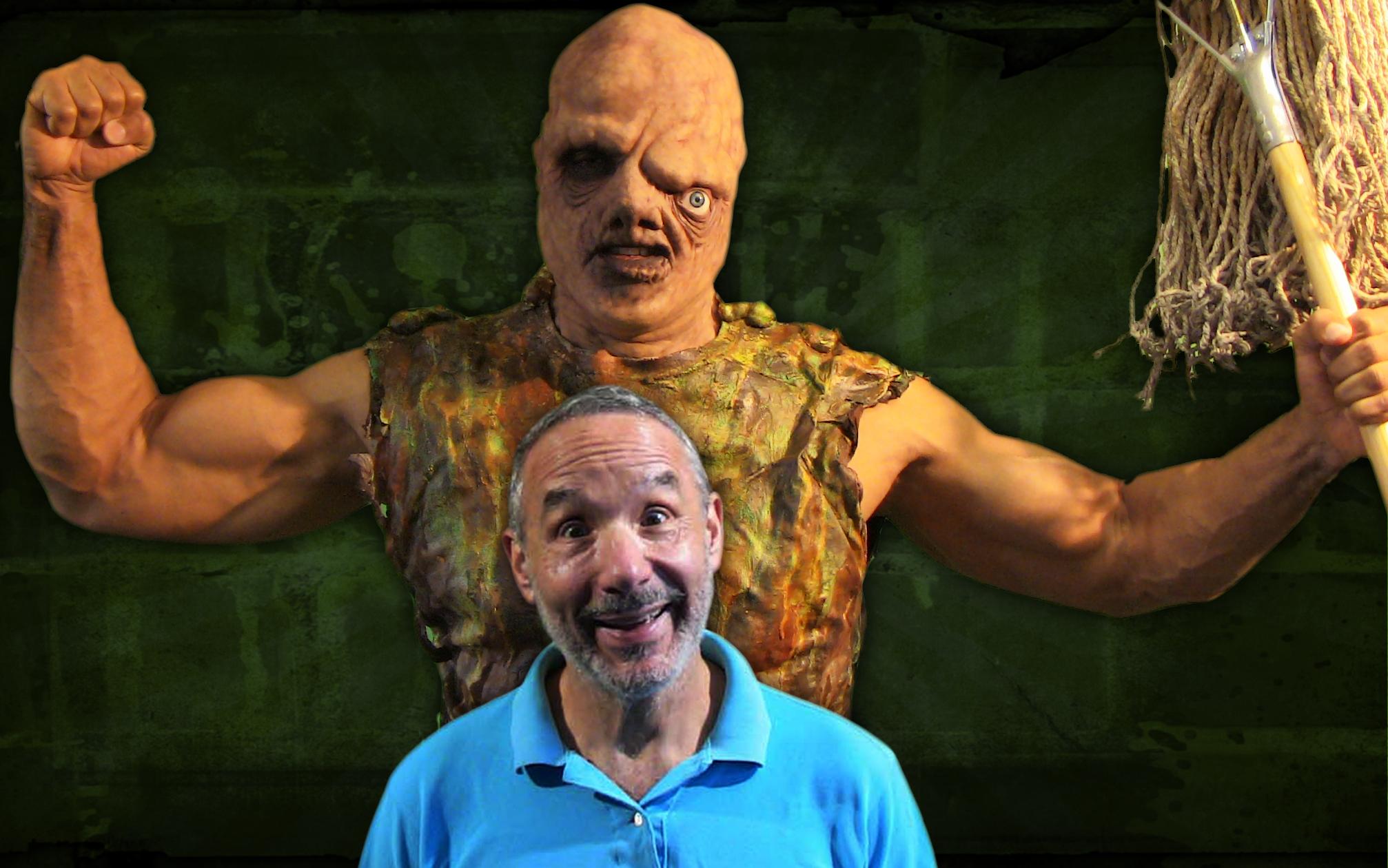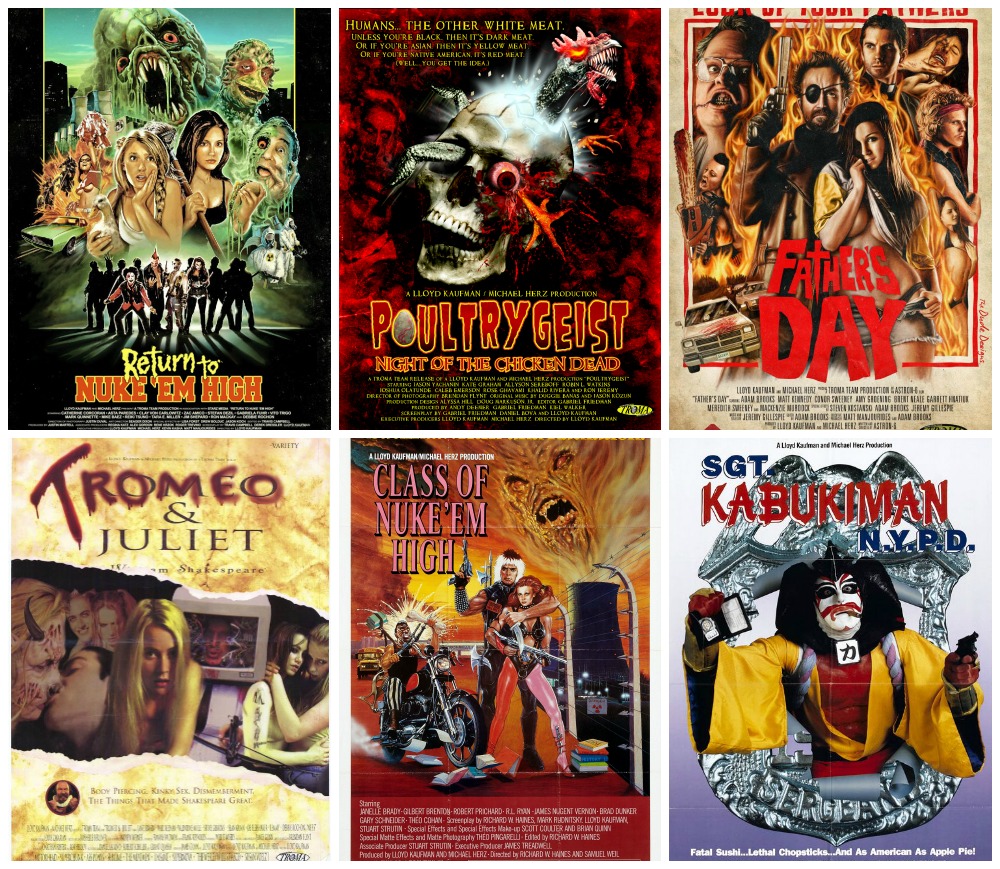BENEATH THE BLOOD AND GUTS. Interview with LLOYD KAUFMAN of Troma Entertainment

If we had to name the most influential independent movie production company, the one that earned the right to be called a cult phenomenon, we’d say: Troma. The studo that brought wacky, shocking, violent exploitation movies as close as possible to mainstream. The one that helped to launch the careers of J.J. Abrams, James Gunn, Kevin Costner and Billy Bob Thornton. We’ve had the pleasure to talk to Lloyd Kaufman – writer, director, producer, actor, and co-founder of Troma Entertainment.
Michal Puczynski: Is it true that you never wanted to make movies, but rather focus on making Broadway musicals? If so, what made you change your mind? And would your musicals be as wacky and original as your movies?
Lloyd Kaufman: As a gay married man, I’ve wept profusely through every Judy Garland musical and Broadway show. If I can barely watch them, how could I be expected to direct them? What respectable actor would listen to the instructions of a drooling, sobbing old man?
When I first became interested in musicals, I was inspired by the works of George Gershwin, Rodgers & Hammerstein, and Rodgers & Hart. Had I not Tromatized myself into a corner, I would likely have created great art and carried on in their tradition. Instead, I went on to perfect the art of crushing fake skulls on camera. Even so, many of the films I’ve directed feature at least some on-screen singing and dancing. Return to Nuke ‘em High Volumes 1 & 2 feature musical numbers, and I consider Poultrygeist: Night of the Chicken Dead to be a full fledged musical; albeit featuring 300% more blood than what is typical for musicals.
The real reason I didn’t pursue the Broadway path was because of my roommate at Yale, Robert Edelstein, who introduced me to the joy of cinema and filmmaking. Little did he know at the time what a huge favor he was doing for Broadway.

Early in your carreer you have collaborated with John G. Avildsen, of Rocky and The Karate Kid fame, and Oliver Stone, yet your style evolved in such a different way than theirs. Your paths have separated – but why? Is that because you look for different values in movies? Because you don’t like mainstream?
LK: John G. Avildsen was a huge influence on me, and it was a privilege to work with him early in my career. When I first started directing, I applied observations from working with John into my own methods, warping them a bit to reflect my own aesthetic.
I am considered an auteur…at least that’s what Cinematheque Francaise says. Auteur films are an intimate expression of the soul of the artist. My soul is just different. It’s different from the soul of Oliver Stone (who actually followed me into filmmaking) and it’s different from the souls of most sane, mainstream directors. When you watch the tasteless gore, sex, and profanity in my films, you’re really just watching me.
For me, Troma is punk rock of movie industry, but I may be wrong. What really stood behind the studio’s idea? Was the funding of Troma an act of rebellion against the studio system? Or were you and Michael Herz just two guys with similar ideas and a desire to make movies?
LK: You’re not the first person to equate Troma to punk rock, and you’re probably right. Music would be a lot more boring without punk rock, and I believe the same can be said for a film industry without Troma.
We exist because we have to. The main reason for the creation of Troma was so that Michael Herz and I could make movies free from the constraints of the studio system. Neither of us really liked being told what to do, what to write, or how to direct. There was only one way out, and that was Troma. Michael Herz and I have managed to survive outside of the studio system for over 40 years. That’s not only a testament to the staying power of sex and violence, it’s a testament to our great partnership. Michael Herz and I were probably separated at birth, and I don’t do anything without his approval.

Toxic Avenger is one of your most famous movies, and for a while it actually went full mainstream – it had its own comic book series, a video game, and even a cartoon. And frankly, that’s something I can’t wrap my mind around: Toxie as a role model for kids. How did the idea of a cartoon come to life? What was your role in the production process?
LK: I have no idea how the Toxic Avenger, a movie that features a child’s head getting crushed by an automobile, was adapted into a TV series for kids. I will never be able to wrap my mind around this either. However, Toxie is actually a great role model if you think about it—he takes care of his mother, he’s loyal to his blind girlfriend, and he protects and defends the weak…in fact, if you remove all the gratuitous sex and violence from the Toxic Avenger, what’s left is a great kids’ movie.
In the creation of the “Toxic Crusaders” cartoon series, I got to write some of the episodes, and Michael Herz and I approved all the character designs and elements that made it to the finished product. You can actually watch the series on our TromaMovies YouTube channel found here: https://www.youtube.com/user/Tromamovies, along with 200+ other Troma movies free of charge as a thank you to our fans.
Class of Nuke’em High. Sgt. Kabukiman, NYPD. Poultrygeist: Night of the Chicken Dead. Tromeo and Juliet. That’s some positively odd – and seemingly random – stuff. What were Troma’s criteria when it came to choosing which movie to make next? Were you just shooting whatever you thought was interesting, or were you considering if the idea will sell? In other words: was Troma an unusual business or a crazy idea that happened to catch on and make money?
LK: One thing you’ll notice about our movies is that buried beneath the blood and guts, they all address contemporary sociological themes. For example, Poultrygeist was inspired by our hatred for the amoral practices of the American fast food industry. Return to Nuke’em High Volumes 1&2 address the horrible trend of junk food being stuffed down the throats of America’s school children, causing our future best and brightest to become our worst and fattest. Sgt. Kabukiman, NYPD was inspired by the anti-Japanese sentiment and politics of the 1980s, during a time when Japanese corporations were buying up many American assets. Kabukiman was supposed to symbolize Eastern and Western ideals pooled together to create peace and prosperity, although I’m not sure anyone caught on to that.
The reason for Troma’s “success” as you so kindly put it is that we make movies that we truly believe in and that come from the heart. Shakespeare famously said “to thine own self be true,” and that is exactly what we do. That’s right…we’re just like Shakespeare. We have never tried to figure out what will make money. Movies are supposed to be an artistic expression, and that’s why we make them. If I wanted to make money, I would be Michael Bay or Hillary Clinton. Trust me; there are much easier ways to make money than by making movies.

My next question is regarding that one thing I find particularly curious about your early carreer: why did you use so many pseudonyms? Sometimes you’re credited as Louis Su, H.V. Spyder and Samuel Weil. Why didn’t you use your real name since the beginning?
LK: I didn’t use my real name for those movies because I wasn’t in the directors’ union. The only way to pay the rent was to be an associate producer on mainstream movies. The Directors Guild of America tried to kick me out—more than once—for the crime of directing movies like Squeeze Play, Waitress, Stuck On You and Troma’s War. If I didn’t use my real name, they couldn’t find me guilty, and therefore couldn’t kick me to the curb. Once Troma became successful, I quit the Directors Guild, and that racist and sexist organization can rot in hell!
And to sum it all up: would 1960s Lloyd Kaufman like the movies made by Lloyd Kaufman of Troma Entertainment? Would he expect his carreer to take this somewhat weird, but fun and original turn?
LK: Grammy Kaufman, my grandmother, vehemently disliked everything that white bread America had to offer. Just to give you an idea of the kind of person she was, she would literally spit every time anyone uttered the name “Nixon.” We were constantly cleaning the carpets. She would send me alternative newspapers and magazines, like I F Stone’s Weekly, along with the writings of Scott Nearing and C. Wright Mills. The anti-establishment spirit of these writers had a profound impact on me, as you could probably guess by watching any of my movies.
My guess is that the Lloyd of the 60s would appreciate that 2015 Lloyd has stayed deep in the reeds of the underground, and has left a giant, unmistakable footprint on cinema stretching from Oliver Stone to QuentinTarantino, Takashi Miike, Gaspar Noe, Peter Jackson, and Alex de la Iglesia.
Thank you for your answers.

